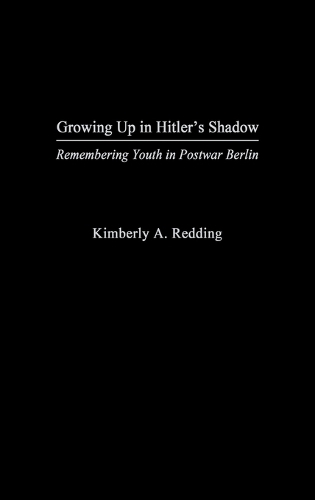
Growing Up in Hitler's Shadow: Remembering Youth in Postwar Berlin
(Hardback)
Publishing Details
Growing Up in Hitler's Shadow: Remembering Youth in Postwar Berlin
By (Author) Kimberly A. Redding
Bloomsbury Publishing PLC
Praeger Publishers Inc
30th July 2004
United States
Classifications
General
Non Fiction
943.086
Physical Properties
Hardback
208
Description
Drawing on oral narratives and archival sources gathered in Berlin, this study explores how some 35 Berliners have woven personal memories, their city's divided past, and their nation's complex historical legacy into cohesive life narratives and collective identities. Redding argues that daily experience during the final years of World War II inadvertently prepared German youth for defeat and occupation. While postwar officials lamented youth's apparent apathy, young Berliners were in fact applying lessons in pragmatism and self-reliance learned as National Socialist society crumbled in 1944 and 1945. Although competing political forces strove to rapidly remobilize German youth, young Berliners took advantage of destabilized sociopolitical structures in their war-torn city to assert autonomy and pursue personal initiatives. Their retrospective narratives reveal creative efforts to claim for themselves the normal pleasures of modern youth in the midst of rubble. These accounts also demonstrate how Cold War ideologies and loyalties have informed memories of daily life in Allied occupied Berlin. In a broader sense, the study sheds new light on the collective experiences, memories, and self-perceptions of a generation of Germans who grew up in a world defined by World War II and Allied occupation, rebuilt their devastated society under Cold War parameters, and eventually negotiated the unification of the two successor states.
Reviews
[H]er account does provide an anecdote to the occasional broad-brush generalities that portray postwar Berlin as populated by heroic inhabitants clearing the rubble and desiring a new beginning. Redding demonstrates that for all the tumultuous events of war, collapse, and occupation after 1945, most of those she interviewed simply wanted to just be young. Recommended. Upper-division undergraduates and above. * Choice *
Redding's microhistory is packed with intriguing anecdotes, making it a valuable reference book for Berliners and historians of the city. But it also raises vital questions which other historians may wish to pick up on. At what point did ordinary Germans recognize the war as lost How did the progressive collapse of public authority and Nazi credibility during the later war years help delegitimize the regime even before May 8, 1945 To what extent did the Hitler Youth experience and the self-reliance fostered by the post-war situation lay the foundation for Germany's later success These questions are worth pursuing, and Redding's book provides an excellent starting point. * American Historial Review *
Author Bio
Kimberly A. Redding is assistant professor of history at Carroll College. She earned her PhD in history at the University of North Carolina, Chapel Hill, in 2001, with emphases on modern Germany and social history.
